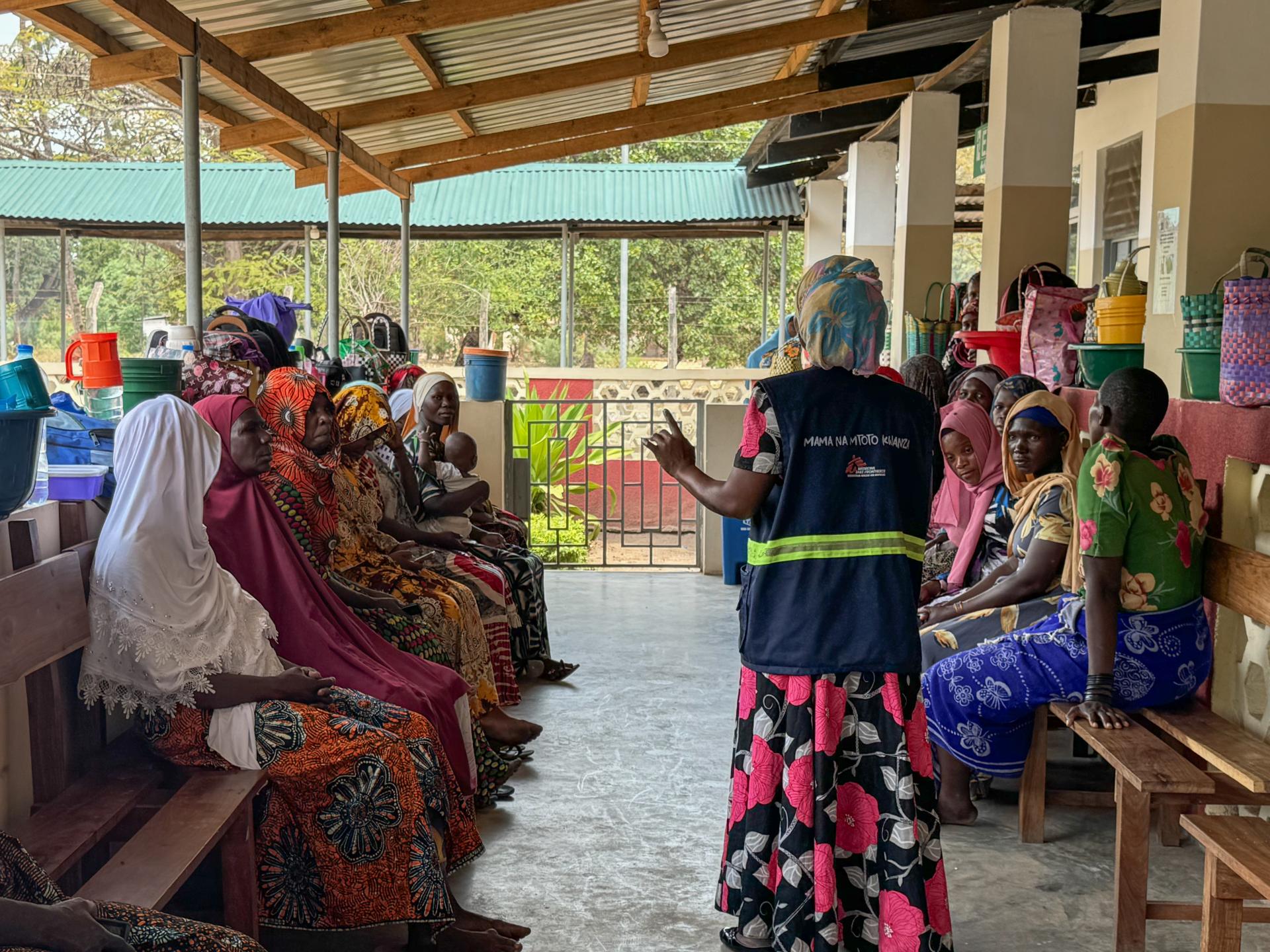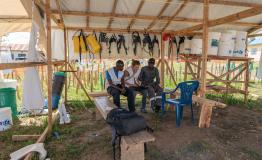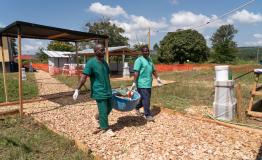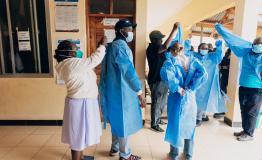"My daughter was able to give birth safely to a healthy baby boy,” says new grandmother Keja Masaga. “The doctors here have been incredibly kind and supportive.” Keja’s daughter gave birth at a maternity unit set up by Médecins Sans Frontières (MSF) in 2022 in Liwale health centre, in Tanzania’s Lindi region, to improve access to quality primary and secondary healthcare for mothers and children and support local health authorities..
Next door to the health centre is a dedicated maternity waiting home, also set up by MSF, which provides a safe space for expectant mothers with potentially risky conditions such as hypertension or pre-eclampsia who have travelled from distant villages to give birth in Liwale.
"This facility has been a lifesaver for me and many other women from distant villages,” says Kulwa Shija, who is staying in the maternity waiting home while she prepares to give birth. “Staying here under the care of the doctors has given me peace of mind and ensured the safety of my baby and me."
Over the past two years, the maternity waiting home has significantly reduced the risk of pregnant women suffering complications as a result of hypertension and other medical conditions, as they receive professional medical care before giving birth, during their delivery and in the days following the birth.

"The maternity waiting home has been a game-changer for our district,” says district medical officer Dr Jumanne Magati. “It provides a safe environment for expectant mothers with high-risk pregnancies to await delivery under the supervision of medical staff. This facility ensures that women from far-to-reach villages receive the care they need before giving birth."
MSF has enhanced maternal care in Liwale Health Center by renovating the maternity unit, operating theatres and waste management systems while supplying essential medications to six health facilities in Liwale district.
MSF has also equipped the district with two ambulances, which play a crucial role in connecting isolated communities to emergency medical care. Patients needing urgent or specialised care can now be transported swiftly to health facilities, including women with high-risk pregnancies and those needing emergency obstetric care.
In parallel, MSF teams have addressed infrastructure gaps in Liwale district that significantly impact overall health outcomes. Access to clean water is essential for ensuring safe medical practices and for preventing diarrhoea and other waterborne diseases, which are particularly dangerous for young children and pregnant women. Recognising this, MSF water and sanitation experts have drilled a borehole at Kibutuka health centre to provide a steady and reliable source of drinking water.
By working to improve hygiene practices within Kibutuka health centre, MSF has ensured safer conditions for giving birth as well as for other medical procedures.
Due to its remote location, poor road infrastructure, and limited healthcare facilities, Liwale District struggles with a high disease burden, particularly among women and children, due to scarce medical resources. Taken together, MSF’s interventions over the past two years have significantly strengthened the district’s health infrastructure, creating a safer environment for mothers, children and other people in need of urgent medical care.



